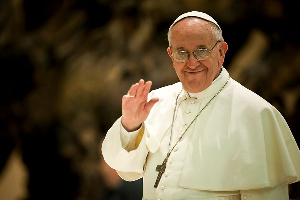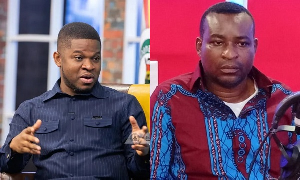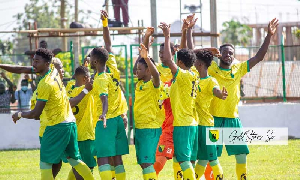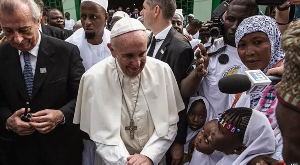By Kwame Okoampa-Ahoofe, Jr., Ph.D.
Among the Akan of southern and central Ghana, there is a maxim which loosely translates as follows: “Under almost any circumstance, death must be preferred over humiliation.” For the Akan, therefore, it can hardly be gainsaid that the salient gauge of a civilized society, perforce, includes the level and extent to which the tenets of human dignity and human rights, in general, are both observed and enforced by the statal apparatus. And it is also not for naught that the Akan are fond of saying that: “No level of humn degradation is befitting of an Akan person.”
And while, indeed, the preceding could be vehemently argued over as not being the especial preserve or cultural peculiarity of only Akan-speaking people but, in fact, a globally shared and cross-cultural value, still, what is left unsaid, in terms of how other Ghanaians of non-Akan descent, or extraction, envisage themselves was recently demonstrated by the country’s Upper-East regional minister, Mr. Mark Wayongo, when the latter seemed to have implied that the public parading of some two male suspects of attempted-shooting stark naked on a principal street in the Upper-Eastern capital of Bawku was perfectly normal because, in the opinion of Mr. Wayongo, “the people of Bawku [have been living] under abnormal circumstances and conditions [for quite awhile now].”
The suspects, whose punitive nudity had been videotaped as well as photographed to accompany a flurry of media reports about the incident, are alleged to have gone on the lookout for some potato harvesters whom they intended to gun down for reasons not explained in any of the legion media reports (See “Stripping Suspects Naked Is More Acceptable Than Killing – Wayongo” MyJoyOnline.com 11/29/09).
And here may be promptly recalled for the benefit of readers that Bawku, Ghana’s Upper-East’s regional capital has been in the savage grips of inter-ethnic battles for sometime now, with quite an alarming rate of casualty figures being periodically reported.
Still, whether such local climatic turmoil warrants the summary suspension of the rule of law and moral decency, as Minister Wayongo appears to be implying, is one that may aptly be deemed moot. And to be certain, in the wake of his reportedly apparent complicity with military vigilantism, quite a slew of Ghanaian media reporters, commentators and letter-writers have demanded the resignation of the minister.
For their part, some members of the Ghana Armed Forces (GAF), billeted in Bawku primarily for peacekeeping purposes, but who have allegedly orchestrated this bestial Rawlings-like breach of public and moral decency, released a statement vehemently denying the fact that, indeed, anything of the aforesaid description might have occurred under their watch and, even more significantly, with their complicity. Curiously, albeit hardly surprisingly, almost immediately following the denial of its flagrant complicity in the humiliation of the two attempted-shooting suspects, a Ghanaian newspaper, the Daily Guide, released a video footage poignantly contradicting the GAF press-release denial, with the video footage clearly showing the two naked criminal suspects being drilled by some armed members of the GAF. The website of Ghana’s leading private radio station, Joy-Fm, would also shortly post an article captioned “Stripping Crime Suspects: Were Soldiers Right?” with a terse lead reading as follows: “It is now established that the security establishment trying to maintain peace in the protracted Bawku conflict were economical with the truth in the matter of the two suspects arrested for allegedly attempting to gun down another person” (11/24/09).
Now, though, the question verges on one regarding whether in view of the fact that, as Minister Mark Wayongo maintains, “the people of Bawku live under abnormal circumstances and conditions,” a wholly new and different set of laws must be permitted to be applied in administering the city of Bawku, in particular, and the Upper-East region, in general. Then also the question of the message that such system of governance may convey not only to the rest of the country but the global community at large arises. I mean, it is perfectly normal to maintain such momentarily commensurate measures as curfews and weapons codes, but to strip criminal suspects of all decency by luridly parading them naked through urban principal streets before these suspects have been arraigned before a legitimately constituted court of law, is one that may be aptly envisaged to be at odds with a model democracy such as Ghanaians
prefer their country to be deemed by the proverbial international community.
*Kwame Okoampa-Ahoofe, Jr., Ph.D., is Associate Professor of English, Journalism and Creative Writing at Nassau Community College of the State University of New York, Garden City. He is a Governing Board Member of the Accra-based Danquah Institute (DI), the pro-democracy policy think tank, and the author of 21 books, including “Ghanaian Politics Today” (Atumpan Publications/Lulu.com, 2008). E-mail: okoampaahoofe@optimum.net.
###
Opinions of Tuesday, 6 April 2010
Columnist: Okoampa-Ahoofe, Kwame
Wayongo Philosophy and the Question of National Decency
Opinions













